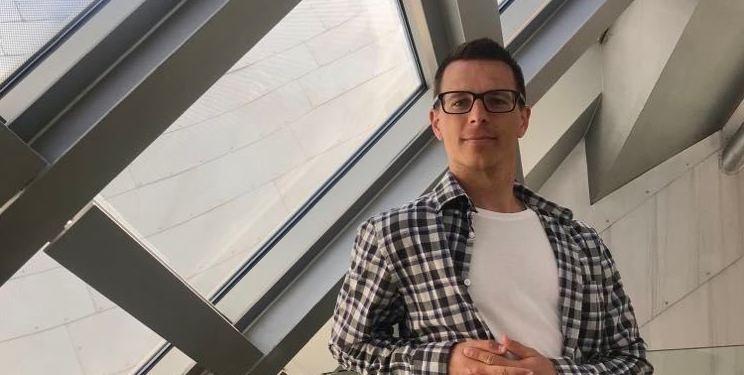Q&A with João Henrique Falk Neto
24 April 2023

João Neto
Graduate student João Henrique Falk Neto has taught many classes in the University of Alberta’s Faculty of Kinesiology, Sport, and Recreation, from physical activity, nutrition and energy balance to introduction to the biological aspects of fitness to health. He’s even taught a class about his favourite sport, soccer.
No matter the topic, Falk Neto is dedicated to providing the best possible learning environment for his students, and his dedication to teaching was recently recognized with a Graduate Student Principal Instructor Teaching Award.
With classes winding down from the winter term, Falk Neto took some time to share his thoughts on teaching, the focus of his research, and what’s next for him following his own graduation.
Tell us about yourself, João.
I'm a PhD candidate in the Faculty of Kinesiology, Sport and Recreation (KSR). I'm an international student from Brazil and I've been in Canada since 2015 and at the U of A since 2017. I suppose I'm a very typical KSR student because I’m incredibly interested in sports, and that’s what sparked my interest in the science behind sport.
What made you choose the U of A for your graduate studies?
I found out about the U of A from a booth at a study fair in Brazil. I ended up going to the University of Victoria for my master’s degree, then I came to the U of A for my doctoral studies.
What do you love about teaching?
I think it's knowing that the students can take something positive from the course content that can help themselves in their own pursuits. I've been pretty lucky to teach only "fun courses" — the ones related to physical activity and nutrition, fitness or endurance training for example — where the students are always incredibly interested in the topics and want to know more about it.
So the interactions that happen during class and after are great experiences. Sitting down to talk to the students for another 15 or 20 minutes, answering questions in general about training or nutrition in our class forums or via e-mail, and having them tell you that the content they learned in their course helped them make a change in how they train or allowed them to start exercising more regularly, or bust that fitness myth, is something I really enjoy, especially with the amount of misinformation out there.
What does receiving the Graduate Student Principal Instructor Teaching Award mean to you?
It means that the students took something positive from the course and enjoyed their experience of learning it enough that their feedback was positive. And it is good to see their feedback and figure out where I can improve moving forward as well.
What’s your research focus?
I came to the U of A with the idea of investigating how to improve repeated sprint ability in team-sports athletes such as soccer and rugby players — athletes who are required to sprint, then rest a little bit, then sprint again. Things shifted and I ended up doing very similar research, but with triathletes instead.
There are quite a few endurance events where this pattern of sprint, "rest" at a lower intensity, repeat occurs. Some researchers are calling them "intermittent endurance events" and comparing these races to team sports, such as soccer and rugby. So I’m investigating the physiological demands of performing multiple sprints during an endurance event, trying to understand how it affects fatigue development and performance.
What’s next for you?
I would love to continue to teach and find ways to make it a better experience for the students. I want to do more knowledge translation, whether through podcasts, conferences, coaching education or whatever opportunities are out there. And, of course, I want to do more research. I would love to contribute to better training for health and performance and there's no shortage of areas where more research is needed.
Is there anything you’d like to add?
I really have to thank a few people for the help I have received along the way. My supervisor, Dr. Michael Kennedy, has had the most influence on my research and teaching at the university. I would also like to thank Normand Boule and Michael Chizewski, who took the time to meet with me and give me some tips when I was teaching a course for the first time, as well as Brian Maraj, with whom I had some great conversations about teaching, as well as the professors I worked with and my lab colleagues, Aidan Comeau and Sara Szabo, who have all influenced my teaching based on our conversations.
And finally, I have to thank the students that I worked with, in particular the ones who asked questions, sent e-mails, stayed after class to chat about the course content. They’re the ones who allowed me to reflect on my teaching after every class. I think they often saw themselves as taking too much of my time, but to me they’ve been incredibly helpful.